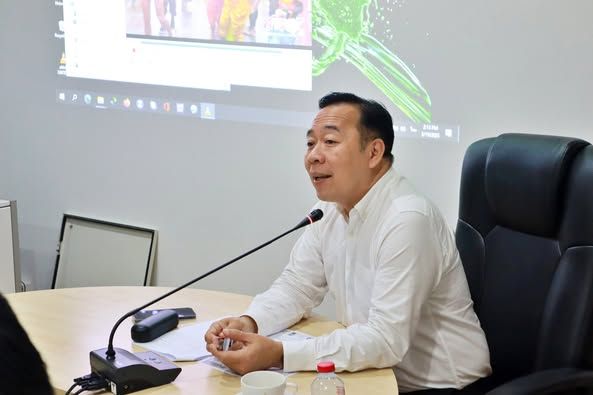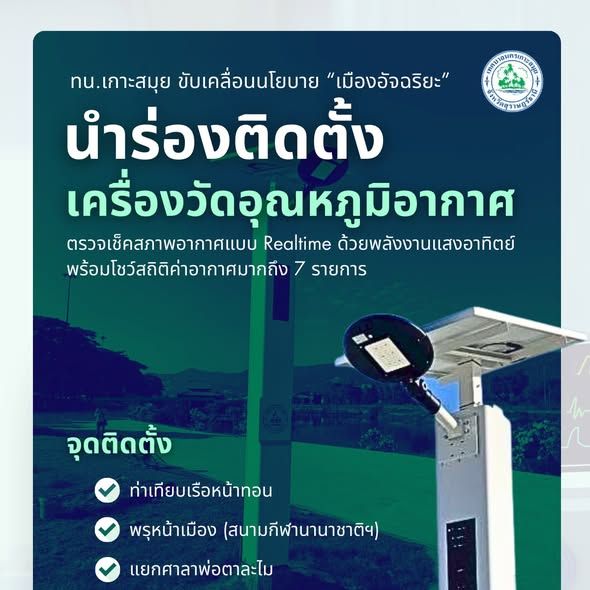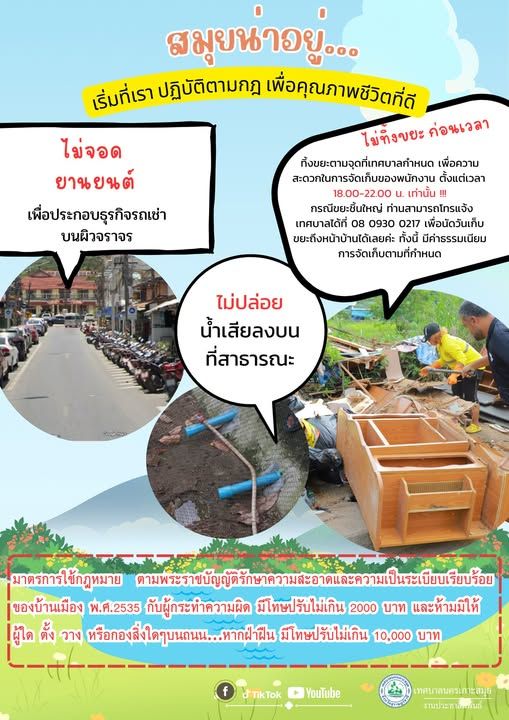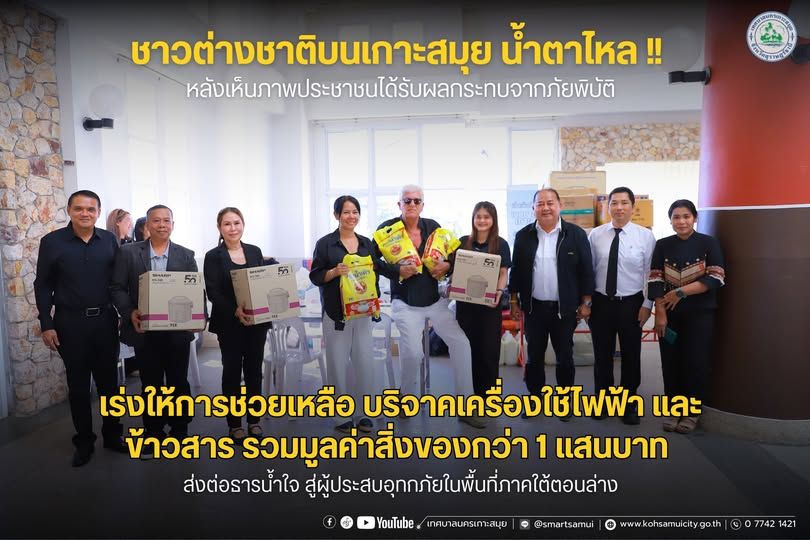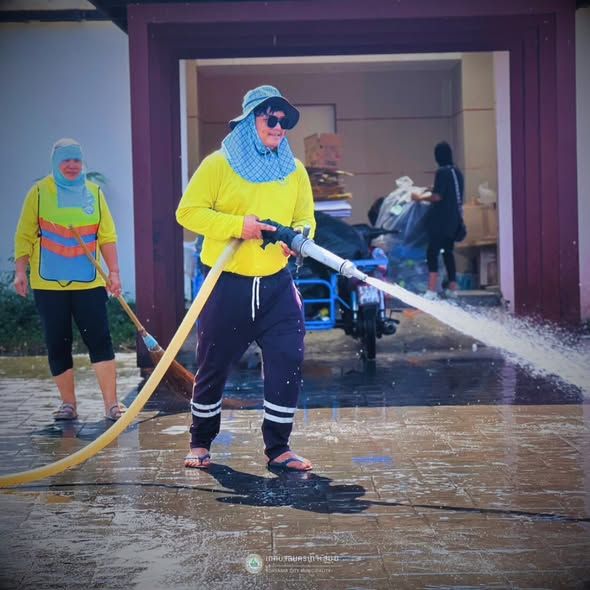Experience the ultimate water festival at Songkran 2025 on Ko Samui, where traditional Thai New Year celebrations come alive with vibrant parades, cultural rituals, and community spirit. Join Deputy Mayor Pakorn Kanjana-opas at Nathon’s Cultural Street on April 13th for an unforgettable day of joy, blessings, and water-splashing fun!
Songkran2025 #KoSamui #ThaiNewYear #FestivalOfJoy #ThaiCulture #TravelThailand #WaterFestival #ExploreSoutheastAsia #ThailandTravel #CulturalCelebration
Overview of Songkran on Ko Samui
Ko Samui, one of Thailand’s premier island destinations, is preparing for a vibrant and culturally significant celebration of the 2025 Songkran Festival. The municipality, led by Deputy Mayor Pakorn Kanjana-opas, convened a comprehensive preparatory meeting on March 19, 2025, with key stakeholders including government officials, school administrators, and community leaders. This year’s festival adopts the theme “Joyful Samui Songkran, Festive Nathon, Reflecting Thai Ways,” emphasizing the preservation and revitalization of Thai cultural traditions.
Date, Time, and Venue
The Songkran Festival on Ko Samui is set for April 13, 2025. Festivities will commence at 6:00 a.m. along Cultural Street, Soi Klang Nathon, a central thoroughfare in the bustling Nathon community. The organization and execution of the event involve close collaboration between government agencies, the private sector, and local communities from Moo 3, Ang Thong Subdistrict, including several prominent local communities.
Organizational Structure and Community Involvement
The coordination of the festival is managed through various dedicated committees. During the preparatory meeting, responsibilities were formally allocated according to a detailed draft order. Active participation is expected from the Tha Ruea Nathon, Na Amphoe, Saphan Yee, Shrine, Nathon, and Ban Pru Kam communities, as well as the wider Ko Samui public. The Ang Thong Subdistrict Community Committee is taking a lead role in curating traditional activities and engaging residents of all ages.
Integration with National Campaign Measures
The Department of Local Administration has introduced a campaign, “Songkran at My Home, Colorful Thai Style, Universal Joy: Once in a Lifetime – Experience Songkran in Thailand,” aimed at enhancing the festival’s appeal for locals and visitors while maintaining safety and cultural integrity. The campaign outlines measures across four dimensions, encompassing a total of seventeen specific actions:
1. Cultural Dimension
- Emphasizes the wearing of traditional Thai attire by all participants.
- Highlights the importance of Buddhist rituals, merit-making, and water-pouring ceremonies for elders and Buddha images.
- Ensures the preservation and revival of Thai customs and values.
2. Economic Dimension
- Encourages collaboration between local businesses and communities.
- Promotes the sale of traditional products and foods, benefiting the local economy.
- Fosters a welcoming environment for tourists, supporting the island’s hospitality sector.
3. Social Dimension
- Promotes inclusive participation among all sectors of the community.
- Facilitates intergenerational engagement, with activities designed for both youth and elders.
- Enhances public awareness of Thai heritage and mutual respect.
4. Environmental Dimension
- Implements waste reduction and recycling initiatives during the festival.
- Promotes the use of eco-friendly materials for decorations and packaging.
- Encourages responsible use of water during traditional sprinkling ceremonies.
Key Festival Activities
Traditional Attire and Ceremonies
All attendees are encouraged to wear traditional Thai clothing, symbolizing respect for heritage and creating a visually stunning festival atmosphere. The day will begin with a Buddhist ceremony featuring nine monks chanting auspicious blessings, followed by a merit-making alms ritual where participants offer food and essentials to monks.
Water-Pouring Rituals
A core aspect of Songkran, the water-pouring ritual, will involve gently pouring water over Buddha images and the hands of local elders. This act symbolizes purification, respect, and the seeking of blessings for the year ahead.
Parade of Buddha Images
A unique highlight is the ceremonial bathing of revered Buddha images from three local temples. These images will be respectfully placed on decorated vehicles and paraded through the Nathon community, allowing residents and visitors to participate in the bathing ritual and receive blessings.
Community Cultural Showcase
A variety of traditional performances, folk music, and dance are scheduled, offering participants and spectators a vivid experience of southern Thai culture. Local artisans and vendors will display and sell crafts, food, and souvenirs, adding a festive market atmosphere.
Collaboration and Promotion
Ko Samui Municipality works in partnership with educational institutions, religious organizations, private enterprises, and local government offices. This collaboration extends to public relations campaigns aimed at promoting responsible celebration, cultural pride, and environmental stewardship.
Songkran’s Significance on Ko Samui
Songkran, celebrated as the Thai New Year, is a period of renewal, goodwill, and familial bonds. By focusing on cultural preservation, community engagement, and sustainable practices, the 2025 Songkran Festival on Ko Samui not only offers a memorable experience for participants but also strengthens the island’s cultural legacy for generations to come.
Frequently Asked Questions
FAQ: Songkran 2025 on Ko Samui
What are the key highlights and traditional activities at Songkran 2025 on Ko Samui?
Songkran 2025 on Ko Samui will feature vibrant parades, Buddhist ceremonies with monks, and the iconic water-pouring rituals symbolizing purification and blessings for the Thai New Year. Attendees are encouraged to wear traditional Thai attire and participate in merit-making, almsgiving, and the ceremonial bathing of Buddha images from local temples. The festival also includes cultural performances, folk music, dance, and a lively market showcasing local crafts and food.
How is the Ko Samui community involved in organizing and celebrating Songkran?
The festival is a collaborative effort involving government agencies, school administrators, community leaders, and local residents, with special roles for communities like Tha Ruea Nathon, Na Amphoe, Saphan Yee, Shrine, Nathon, and Ban Pru Kam. The Ang Thong Subdistrict Community Committee leads traditional activities, while local businesses and artisans contribute to the festive atmosphere, ensuring broad participation and intergenerational engagement across the island.
What measures are being taken to ensure Songkran 2025 is safe, inclusive, and environmentally friendly?
Following the national campaign “Songkran at My Home, Colorful Thai Style, Universal Joy,” the festival incorporates cultural preservation, economic support, social inclusion, and environmental responsibility. Specific efforts include waste reduction, recycling, and the use of eco-friendly materials. Activities are designed for all ages, with an emphasis on mutual respect, responsible water use, and community well-being, ensuring the celebration is joyful and sustainable for everyone.
